Arthritis drug could help save one in 25 Covid patients, experts say
New study found that Tocilizumab cuts death risk and speeds recovery
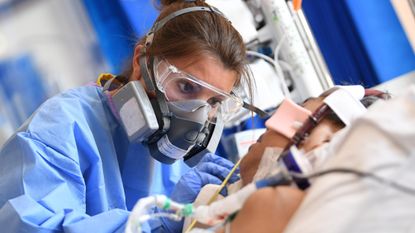
Experts are pinning their hopes on an arthritis drug to save the lives of many thousands of Covid patients after new research found the treatment can cut the risk of death from the disease by about 15%.
The Oxford University-led study also found that tocilizumab “cut the time spent in hospital by five days when it was given to people ill enough to require help breathing”, The Times reports. And patients were “less likely to need mechanical ventilation”.
“Scientists say the drug could save the lives of one in 25 patients admitted to hospital with coronavirus,” ITV adds.
Subscribe to The Week
Escape your echo chamber. Get the facts behind the news, plus analysis from multiple perspectives.

Sign up for The Week's Free Newsletters
From our morning news briefing to a weekly Good News Newsletter, get the best of The Week delivered directly to your inbox.
From our morning news briefing to a weekly Good News Newsletter, get the best of The Week delivered directly to your inbox.
More than 4,000 patients were involved in the new research, part of the Recovery trial, the world's largest randomised study of potential Covid-19 treatments.
A total of 2,022 patients randomly allocated to receive tocilizumab, while the rest received standard care. The researchers found that 596 (29%) of the patients in the tocilizumab group died within 28 days, compared with 694 (33%) patients in the other group.
The drug also reduced the chance of progressing to invasive mechanical ventilation or death from 38% to 33% among those who were not on invasive ventilation when entered into the trial.
Tocilizumab is typically given to patients suffering from rheumatoid arthritis and is administered to patients intravenously.
The drug expected to be used alongside the steroid dexamethasone, which has been used to treat Covid patients for several months. When the two drugs are combined, they help the body’s defences against the disease.
“The double impact of dexamethasone plus tocilizumab is impressive and very welcome,” said Recovery trial co-chief Peter Horby, a professor of emerging infectious diseases at Oxford University.
Health Secretary Matt Hancock has greeted the research findings as “excellent news” and “further proof the UK is at the forefront of the global mission to find safe and effective treatments for this terrible virus”.
Create an account with the same email registered to your subscription to unlock access.
Sign up for Today's Best Articles in your inbox
A free daily email with the biggest news stories of the day – and the best features from TheWeek.com
Chas Newkey-Burden has been part of The Week Digital team for more than a decade and a journalist for 25 years, starting out on the irreverent football weekly 90 Minutes, before moving to lifestyle magazines Loaded and Attitude. He was a columnist for The Big Issue and landed a world exclusive with David Beckham that became the weekly magazine’s bestselling issue. He now writes regularly for The Guardian, The Telegraph, The Independent, Metro, FourFourTwo and the i new site. He is also the author of a number of non-fiction books.
-
 The value of silence
The value of silenceUnder The Radar In a world 'filled with constant yapping' some are making an effort to keep schtum
By Chas Newkey-Burden, The Week UK Published
-
 Today's political cartoons - May 19, 2024
Today's political cartoons - May 19, 2024Cartoons Sunday's cartoons - 2024 votes, AI woes, and more
By The Week US Published
-
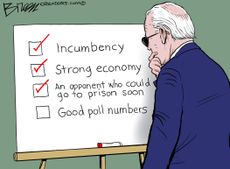 5 high rating cartoons about Biden's low poll numbers
5 high rating cartoons about Biden's low poll numbersCartoons Artists take on checklists, ice creams, and more
By The Week US Published
-
 Covid four years on: have we got over the pandemic?
Covid four years on: have we got over the pandemic?Today's Big Question Brits suffering from both lockdown nostalgia and collective trauma that refuses to go away
By Chas Newkey-Burden, The Week UK Published
-
 The hollow classroom
The hollow classroomOpinion Remote school let kids down. It will take much more than extra tutoring for kids to recover.
By Mark Gimein Published
-
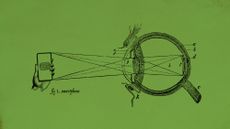 Excess screen time is making children only see what is in front of them
Excess screen time is making children only see what is in front of themUnder the radar The future is looking blurry. And very nearsighted.
By Devika Rao, The Week US Published
-
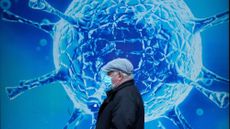 Covid-19: what to know about UK's new Juno and Pirola variants
Covid-19: what to know about UK's new Juno and Pirola variantsin depth Rapidly spreading new JN.1 strain is 'yet another reminder that the pandemic is far from over'
By Arion McNicoll, The Week UK Published
-
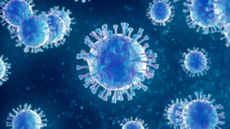 Long-term respiratory illness is here to stay
Long-term respiratory illness is here to stayThe Explainer Covid is not the only disease with a long version
By Devika Rao, The Week US Published
-
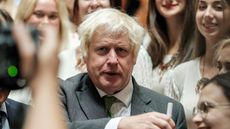 Covid inquiry: the most important questions for Boris Johnson
Covid inquiry: the most important questions for Boris JohnsonTalking Point Former PM has faced weeks of heavy criticism from former colleagues at the public hearing
By The Week Staff Published
-
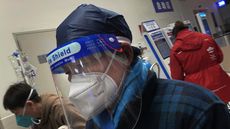 China's pneumonia cases: should we be worried?
China's pneumonia cases: should we be worried?The Explainer Experts warn against pushing 'pandemic panic button' following outbreak of respiratory illness
By Keumars Afifi-Sabet, The Week UK Published
-
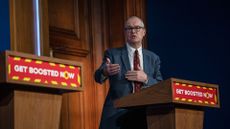 Vallance diaries: Boris Johnson 'bamboozled' by Covid science
Vallance diaries: Boris Johnson 'bamboozled' by Covid scienceSpeed Read Then PM struggled to get his head around key terms and stats, chief scientific advisor claims
By The Week UK Published